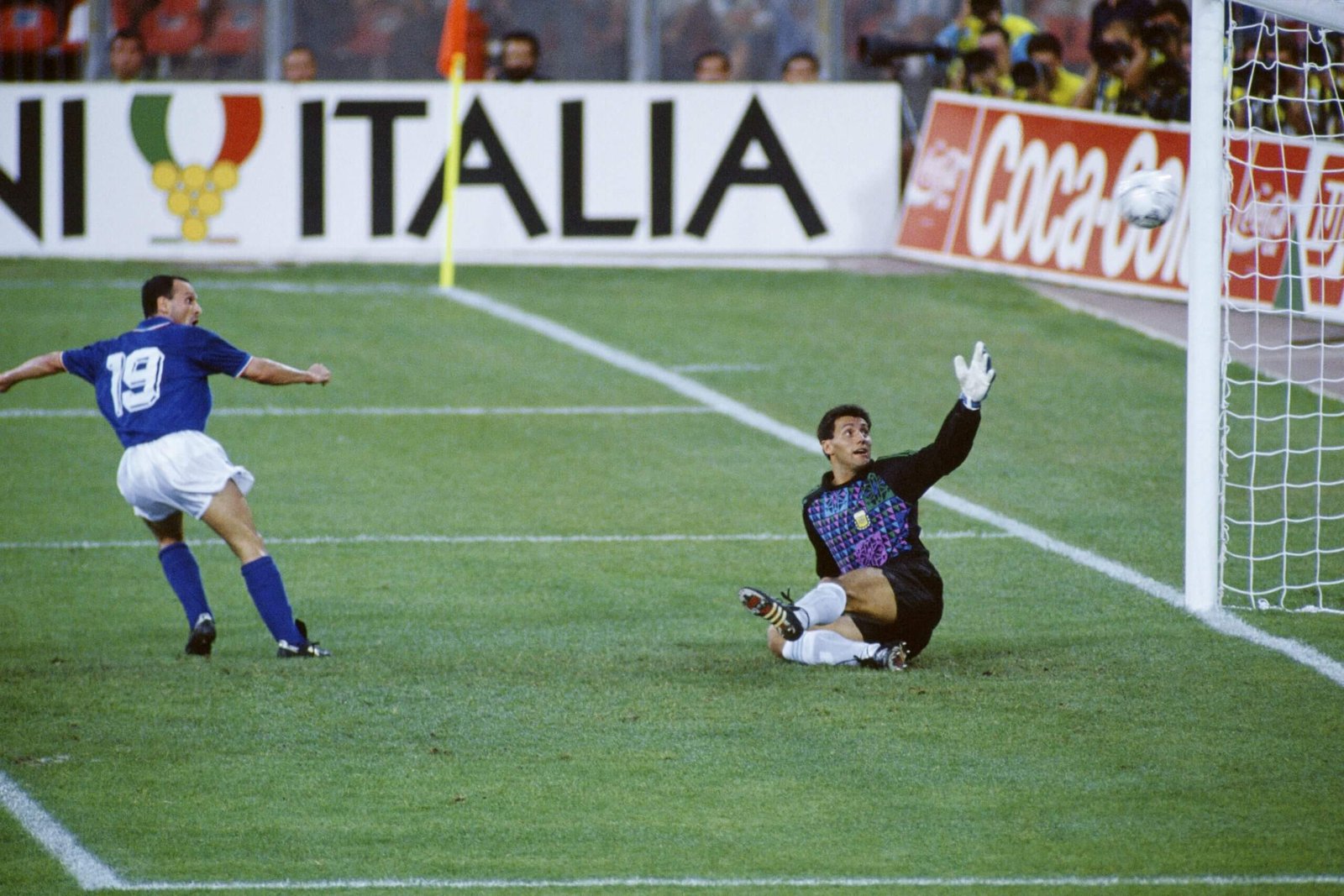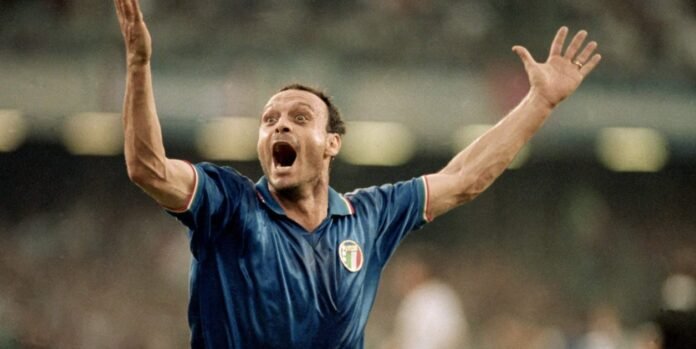Toto Schillaci was in the queue at his local clinic in Palermo last year when all of a sudden a group of masked men in body armour swooped. They were members of ROS, the special ops unit of the Carabinieri. In the line ahead of Schillaci was Andrea Bonafede. Or at least that’s who he claimed to be. Bonafede was not acting, as his surname translates, in good faith when he showed up for his appointment. He was someone else, someone who’d been on the run for 30 years. He was Matteo Messina Denaro, the most wanted member of Cosa Nostra.
When word got round of U Siccu’s capture, news teams couldn’t believe their luck in finding Schillaci among the innocent bystanders. “It was like something out of the Wild West,” he said in disbelief. The mafia has long stigmatised Sicily. Brave prosecutors like Giovanni Falcone, Paolo Borsellino and many others have lost their lives trying to remove it. Schillaci, who passed away this week, aged 59, did something to figuratively erase it himself.
Throughout his career, but in particular at the World Cup Italy hosted in 1990, he gave Sicily something to be deeply proud of. A year before the tournament, Toto was still a relative unknown. “I wouldn’t have bet a lira on making the national team,” he said at the time.
Schillaci was 25 and had spent almost his entire career on his island playing in the lower divisions. The blue he knew best wasn’t the Azzurro of the national team. It was the oily mechanic’s overalls he pulled on when he worked in a car garage to make ends meet. This would be used to belittle him when he left Serie B side Messina, the only team he’d ever known, for the biggest club across the strait; Juventus.
Schillaci and Roberto Baggio at Juventus (Alessandro Sabattini/Getty Images)
In Turin, where so many people from the south had migrated in order to work in the FIAT factories owned by Juventus’ ruling family, the Agnellis, he was still discriminated against for his origins. Graffiti was sprayed outside his apartments and even when Juventus went to play on the heel of Italy’s stiletto in Bari, Schillaci felt no solidarity. He was made to endure chants that played cruelly on his past, not to mention the story about the time his brother was allegedly caught nicking tyres. “Ruba le gomme,” they sang. “Schillaci ruba le gomme.” He steals tyres.
At Italia 90, Schillaci stole hearts instead. And the world’s attention.
His first season at Juventus had gone well. He scored a goal every other game in his first top-flight campaign, winning the Coppa Italia and UEFA Cup. When an Italy call-up came, he thanked Juventus’ chairman Giampiero Boniperti for taking a chance on someone who had spent his entire career until then scrapping his way from the fourth to the second tier. No one expected him to start for Italy at the World Cup. He had kicked off one of the warm-up games but it had ended badly. Italy drew 0-0 with Greece and left the pitch to a cacophony of boos and whistles.
It felt like a failed audition to partner another icon taken from us too soon, the great Gianluca Vialli. That role in Italy’s attack initially went to Andrea Carnevale, a double Scudetto winner, with that season’s champions Napoli. But it didn’t last long.
Goalless going into the final quarter of an hour of their opening game against Austria, the decision was taken to withdraw Carnevale. His replacement was not Vialli’s partner at Sampdoria, Roberto Mancini, who didn’t even make the bench. Azeglio Vicini instead signalled for Schillaci to come on. Minutes later, he scored the winner. It could have been a one-off. Faith was retained in Vialli and Carnevale for another game against the USA but, as they continued to struggle, Vicini prepared a change for the final group stage encounter with Czechoslovakia. He paired Schillaci with Roberto Baggio and, in many respects, they defined the World Cup.
Baggio’s serpentine goal put the world on notice of his Ballon d’Or winning potential. He was destined to become the world’s best player as Maradona self-destructed. Nevertheless, it was Schillaci’s tournament. He scored again and never stopped. Italians remember that tournament as the summer of the Notti Magiche; the Magic Nights, a euphoric lyric taken from the Edoardo Bennato and Gianna Nannini song that provided the soundtrack for that summer.
Schillaci played as if under a spell, his bright eyes stunned at his sudden, fleeting powers.

(Jean-Yves Ruszniewski/Corbis/VCG via Getty Images)
Barely twelves months after finishing Capocannoniere in Serie B under the chain-smoking Messina coach Zdenek Zeman, he won the Golden Boot at a home World Cup. Six of his seven goals for Italy came in the space of that month and with Baggio joining him at Juventus, the future seemed to belong to them. Schillaci was a man transformed. He went from looking like a mechanic to a rock star. When the 123 entrants of that year’s Miss Italia competition were polled on which national team player they’d most like to go on a date with, 87 picked him. The runner-up Walter Zenga only got eight votes.
When the summer reached its twilight, Schillaci returned to the Palermo neighbourhood where he grew up; CEP. His white Jaguar inched through a crowd that rippled like the nearby sea. Poems were written and recited for him as ‘Toto Mondiale’ turned into his old street on Via Luigi Barba.
When Italy next played against the Netherlands in a friendly that September, the Italian Football Federation opportunistically decided it was time to cash in on Toto-mania. They played at the Renzo Barbera in Palermo. It was the first time the national team had appeared in Sicily for 38 years. Schillaci had done what no politician seeking to build a bridge between Messina and the mainland had ever done. He had brought Italy and Sicily together, marching up and winning it over Garibaldi-style. When the game sold out, angry locals desperate to see their hero picked up stones and threw them at the ticket booths. Most of CEP was in the stands that day.
In the end, the hometown hero didn’t score. Baggio did instead. But no sooner had it started, then summer was over. It had flashed before Italy like the whites of Schillaci’s eyes. The supernatural abilities he wielded fell away like autumn leaves spiralling from the trees. Expectations were raised. And they were all but impossible to meet. By joining forces with Baggio he was supposed to challenge and stop the great Milan sides of the era. But Boniperti’s exit, and the constant changes of coach from Dino Zoff to Gigi Maifredi to Giovanni Trapattoni made it hard even for Baggio. Then Toto’s private life was splashed all over the gossip magazines. The car accident that wrecked the career of Gigi Lentini, a world record signing for AC Milan, came, as legend has it, while he was driving to see the wife from whom Schillaci was separated.
But let’s park that.
For generations of Italians, Schillaci came to represent the best summer of their lives. We all have one we’re nostalgic about and 1990 was it for millions. As the great sportswriter, Paolo Condo, put it on Sky Italia this week, Schillaci didn’t only give his best for Italy when it mattered most. He went beyond. Memories of him striding, arms outstretched like a rhythmic gymnast after landing another goal at Italia 90 contrasted sharply with the insipid, bloodless underperformance of the national team at this summer’s Euros.
Toto was tutto. An everyman who, through sheer determination, seemed capable of everything. He showed that even the fleeting can paradoxically endure.
(Ross Kinnaird/EMPICS via Getty Images)
Read the full article here


